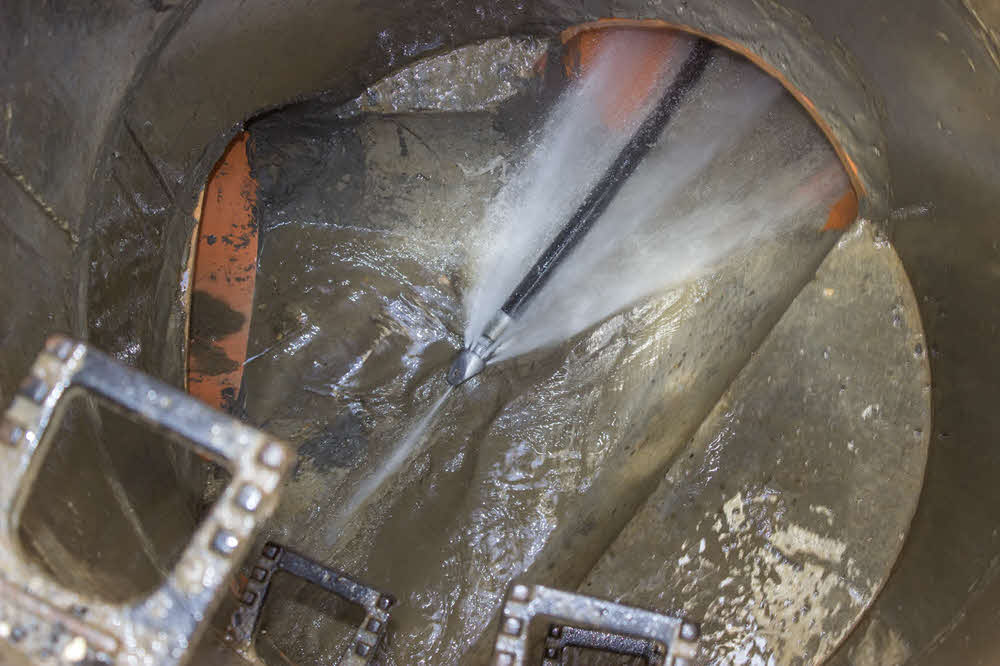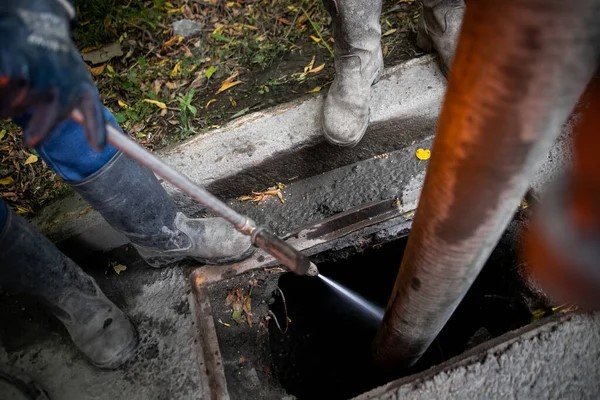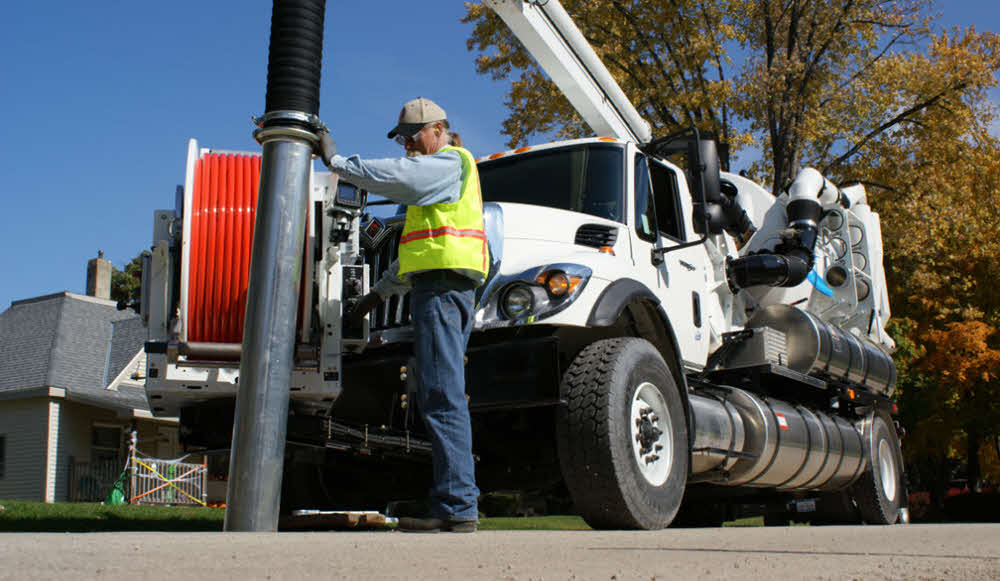Sewer Clean Out Servicesin Lapeer MI
Sewer Clean Outs to Keep Your Plumbing Running Smoothly
We Are Locally Owned & Operated For Over 37 Years
Contact Us Today!
We Serve Businesses In And Around The Following Cities:
About Sewer Clean Out Services
The Importance of Sewer Clean Out in Commercial Properties
Welcome to our comprehensive guide centered on the topic of sewer clean out in the commercial sector within the idyllic city of Lapeer. The often overlooked, yet incredibly imperative sewer system is an essential infrastructural component for businesses. Its role plays a crucial part in creating a healthy and comfortable working environment. Ensuring the efficient functioning of the sewer system helps maintain sanitation, reduces the risk of waterborne diseases and mitigates costly damages and potential legal implications brought about by sewage-related damages.
The Process of Sewer Clean Out
Understanding the process of a sewer clean out is an essential starting point for every commercial property owner. It typically involves accessing the sewer line via the cleanout, an entry point enabling service technicians to perform maintenance on the sewer pipe clogged or blocked by foreign entities. Most commonly, it involves a procedure known as hydro jetting sewer line.
Hydro jetting is a state-of-the-art non-invasive plumbing solution that uses powerful, high-pressure water streams for eradicating sewer drain blockages. This process grants effective cleaning of the sewer line from house to street with minimal disruption. Companies like D&J Contracting utilize this technique, ensuring that your plumbing line remains in peak operational condition.
Assessing the Sewer Line and Associated Costs
A significant aspect of regular maintenance involves meticulous assessment of the state of the sewer line. Problems with sewer lines, like a sewer drain clog, can escalate quickly, causing damage or even leading to the need for a main sewer line replacement. Also, one must consider several other factors such as the average cost of replacing sewer line, the location and depth of the sewer line, and possible landscape changes.
At this juncture, you may question, “where can I find services for sewer line repair near me?” Fortunately, services like D&J Contracting offer comprehensive evaluations and offer personalized ideas on how to fix sewer line issues, approximating sewer line replacement cost and providing sewer pipe repair in a convenient, professional manner.
Beyond Traditional Clean Out Methods
With the advancement of technology, new practices are consistently improving the efficiency and effectivity of sewer cleaning. Trenchless sewer line replacement is a fantastic example of this. This innovative procedure can simplify complex projects such as replacing sewer line from house to main cost-effectively and without damaging your entire yard. Often priced comparably to conventional sewer line replacement near me options, trenchless technology eliminates the need for digging up your property, making it an excellent alternative for main sewer line replacement.
Long-Term Benefits of Regular Sewer Clean Out
Regular sewer clean outs bring a multitude of benefits to your commercial property. First and foremost, it dramatically reduces the risk of drain blockages, mitigating the possibility of germ-infested overflow that could impact the health and safety of your staff and customers. Moreover, maintaining your main sewer line in your property basement helps detect collapsed sewer line problems early, potentially saving you thousands in collapsed sewer line repair costs or main sewer line replacement.
Investing in professional services like D&J Contracting pays off in dividends, keeping your plumbing sewer line functioning optimally and reducing the chances of needing emergency sewer line pipe repairs. Consequently, this secures your business operations from unexpected disruptions, thus saving you the average sewer line replacement cost and preventing a substantial inconvenience.
Take the Next Step for Your Commercial Property
Operating a successful commercial establishment delves far beyond offering exceptional products or service. It requires a keen eye on infrastructural robustness, and the sewage system stands as a prime example. With the many advancements in procedures and methods available – like hydro clean sewer line, trenchless sewer line replacement, pressure jet sewer line – the process of maintaining your sewer system has been made remarkably effective and convenient.
Regular sewer clean outs with professionals like D&J Contracting are not remedial measures for problems but preventative actions that contribute significantly to the long-term success and hygiene of your commercial property. They offer a cost-effective way of preventing disruption in your business operation, ensuring your hard-earned investment in your property does not go down the drain.
With this guide, we hope to have highlighted the importance of a timely, professional sewer system clean out for your commercial property. The city of Lapeer offers excellent services, and investing in the maintenance and care of your sewage system will significantly benefit your business in the present and future.
Sewer Clean Out Services Gallery


Call Us Today to receive your Free Quote for
Sewer Clean Out in Lapeer
Serving: Lapeer, Michigan

About Lapeer, Michigan
|
|
This section needs additional citations for verification. (January 2020)
|
By an ordinance of the Congress of the United States passed on July 13, 1787, the area lying northwest of the Ohio River, though still occupied by the British, was organized as the Northwest Territory. Lapeer County was once part of the Northwest Territory. In January 1820, the county of Oakland was formed, which served the area now known as Lapeer, until the County of Lapeer was formed in 1837, when Michigan became a state. The first elections were for county officers, with 520 persons voting in 1837.
Folklore claims Lapeer was derived from the naming of the south branch of the Flint River, which flows northwestward in Lapeer County. French and Indian traders frequently passed over this section of the county and through the river, ultimately naming the city for the stone that lay at the river bottom. In French, stone is called “la pierre”; the English pronunciation of these words gives Lapeer. The river was named Flint, synonymous with stone. (See List of Michigan county name etymologies.)
It is also believed that the first settlers who came from New York State may have brought the name Lapeer from a similarly named city in their home state. A third supposition is that French missionaries named the city Le Pere, meaning The Father.
The first settlers in Lapeer were a group of men named Alvin N. Hart, Oliver B. Hart, and J.B. Morse. The most prominent of the three, Alvin N. Hart, was born in Cornwall, Connecticut, on February 11, 1804. He came to Lapeer in 1831 and platted the Village of Lapeer, November 8, 1833. The plat was registered in Pontiac on December 14, 1833, in the County of Oakland; four years before Michigan became a state and Lapeer became a county. Alvin N. Hart became a State Senator in 1843, representing Lapeer, Oakland, Genesee, Shiawassee, Tuscola, Saginaw Counties and the entire Upper Peninsula. He was instrumental in having the State Capitol relocated from Detroit to Lansing. Hart died on August 22, 1874, and is buried in Lapeer.
The second group of settlers were Enoch J. White and his family. He was born in South Hadley, Massachusetts in 1814. He came to Lapeer in 1833. Of pioneer stock, Alvin N. Hart and Enoch J. White both had the initiative to start new communities. Mr. Hart formed Lapeer and Mr. White formed what was then known as Whitesville, which now consists of the western portion of Lapeer. A tamarack swamp once separated these two settlements.
Other distinguished natives include John T. Rich, former governor of the state of Michigan; Louis C. Cramton, special assistant to the U.S. Secretary of the Interior in 1931 and 1932. He led studies of the area around the Colorado River that led to the establishment of the first National Recreation Area, Lake Mead National Recreation Area; Charles Potter, whose son became a U.S. Senator; William Reed, Big Ten Football Commissioner; and Marguerite deAngeli, internationally known writer of children’s books.
At one time, there were two courthouses. The White family erected one at the present site of the Old Lapeer High School at Main and Genesee Streets, while the Hart family erected one at Nepessing and Court Streets. The Board of Supervisors purchased the Hart courthouse for $3,000, which is now the oldest continuously running courthouse in the state of Michigan and one of the oldest 10 courthouses in the United States. White’s courthouse later became the first school in Lapeer called Lapeer Academy.
Over time, it became evident that the business district would be near the Courthouse, so the city’s founders moved the Opera House piece-by-piece to its present location at the southeast corner of Court and Nepessing Streets in 1879. The building is now known as the White Block.
Lapeer’s first church was the Congregational Church; organized in 1833, the same year Lapeer was platted. The Methodist Episcopal Church opened its doors a year later, followed by the Baptist Church in 1858, the Immaculate Conception Catholic Church in 1866, the Universalist Church in 1873, the Methodist Protestant Church in 1877 and the Grace Episcopal Church in 1882.
Lumbering was the sole industry in the early days of Lapeer. The flourishing lumber business attracted the New York Central Railroad and Grand Trunk Railroad. Lapeer later became the intersection to two state trunk lines: M-21 and M-24. Industries today supply the automotive industry with gray iron casting, molded plastics, plastic fabrics, electrical harnesses and stamping.
On October 26, 2010, Lapeer became a founding member of the Karegnondi Water Authority.
On August 15, 2012, the fourth-largest Powerball jackpot was won from a ticket sold at a Sunoco station in Lapeer. The jackpot had an annuity value of $337 million.
According to the United States Census Bureau, the city has a total area of 7.38 square miles (19.11 km), of which 7.13 square miles (18.47 km) is land and 0.25 square miles (0.65 km) is water. It is considered to be part of the Thumb of Michigan, which in turn is a subregion of the Flint/Tri-Cities.
| Census | Pop. | Note | %± |
|---|---|---|---|
| 1870 | 1,772 | — | |
| 1880 | 2,911 | 64.3% | |
| 1890 | 2,753 | −5.4% | |
| 1900 | 3,297 | 19.8% | |
| 1910 | 3,946 | 19.7% | |
| 1920 | 4,723 | 19.7% | |
| 1930 | 5,008 | 6.0% | |
| 1940 | 5,365 | 7.1% | |
| 1950 | 6,143 | 14.5% | |
| 1960 | 6,160 | 0.3% | |
| 1970 | 6,314 | 2.5% | |
| 1980 | 6,198 | −1.8% | |
| 1990 | 7,759 | 25.2% | |
| 2000 | 9,072 | 16.9% | |
| 2010 | 8,841 | −2.5% | |
| 2020 | 9,023 | 2.1% | |
| U.S. Decennial Census 2010 2020 |
|||
As of the census of 2020, there were 9,023 people, 3,652 households, and 1,898 families living in the city. The population density was 1,201.5 inhabitants per square mile (463.9/km). There were 3,921 housing units at an average density of 522.1 per square mile (201.6/km). The racial makeup of the city was 81.7% White, 7.7% African American, 0.5% Native American, 0.7% Asian, 1.0% from other races, and 6.4% from two or more races. Hispanic or Latino of any race were 4.4% of the population.
There were 3,652 households, of which 22.3% had children under the age of 18 living with them, 31.5% were married couples living together, 39.9% had a female householder with no spouse present, 19.3% had a male householder with no spouse present, and 52.0% were non-families. 42.8% of all households were made up of individuals, and 17.7% had someone living alone who was 65 years of age or older. The average household size was 2.09 and the average family size was 2.79.
The median age in the city was 40.3 years. 18.3% of residents were under the age of 18; 10.7% were between the ages of 18 and 24; 26.2% were from 25 to 44; 29.8% were from 45 to 64; and 14.3% were 65 years of age or older. The gender makeup of the city was 53.6% male and 46.4% female.
As of the census of 2010, there were 8,841 people, 3,446 households, and 1,927 families living in the city. The population density was 1,240.0 inhabitants per square mile (478.8/km). There were 3,956 housing units at an average density of 554.8 per square mile (214.2/km). The racial makeup of the city was 88.6% White, 7.6% African American, 0.6% Native American, 0.8% Asian, 0.5% from other races, and 1.8% from two or more races. Hispanic or Latino of any race were 3.9% of the population.
There were 3,446 households, of which 32.6% had children under the age of 18 living with them, 32.1% were married couples living together, 18.3% had a female householder with no husband present, 5.5% had a male householder with no wife present, and 44.1% were non-families. 39.2% of all households were made up of individuals, and 15.6% had someone living alone who was 65 years of age or older. The average household size was 2.22 and the average family size was 2.97.
The median age in the city was 36 years. 24.1% of residents were under the age of 18; 11% were between the ages of 18 and 24; 27.2% were from 25 to 44; 24.2% were from 45 to 64; and 13.5% were 65 years of age or older. The gender makeup of the city was 51.5% male and 48.5% female.
As of the census of 2000, there were 9,072 people, 3,443 households, and 1,979 families living in the city. The population density was 1,635.5 inhabitants per square mile (631.5/km). There were 3,658 housing units at an average density of 659.5 per square mile (254.6/km). The racial makeup of the city was 89.91% White, 5.95% African American, 0.47% Native American, 0.57% Asian, 0.03% Pacific Islander, 1.09% from other races, and 1.96% from two or more races. Hispanic or Latino of any race were 3.33% of the population.
There were 3,443 households, out of which 33.0% had children under the age of 18 living with them, 38.3% were married couples living together, 15.7% had a female householder with no husband present, and 42.5% were non-families. 36.8% of all households were made up of individuals, and 14.2% had someone living alone who was 65 years of age or older. The average household size was 2.29 and the average family size was 3.02.
In the city, the population was spread out, with 24.6% under the age of 18, 9.9% from 18 to 24, 36.5% from 25 to 44, 17.1% from 45 to 64, and 11.9% who were 65 years of age or older. The median age was 33 years. For every 100 females, there were 106.8 males. For every 100 females age 18 and over, there were 110.6 males.
The median income for a household in the city was $35,526, and the median income for a family was $42,872. Males had a median income of $36,731 versus $24,552 for females. The per capita income for the city was $16,608. About 8.5% of families and 10.2% of the population were below the poverty line, including 12.3% of those under age 18 and 12.1% of those age 65 or over.
Call Us Today to receive your Free Quote for
Sewer Clean Out in Lapeer
Related Services in Lapeer, Michigan
We Serve Businesses In The Following Zip Codes:
48007, 48015, 48021, 48026, 48035, 48036, 48038, 48042, 48043, 48044, 48045, 48046, 48047, 48048, 48050, 48051, 48066, 48071, 48080, 48081, 48082, 48083, 48084, 48085, 48088, 48089, 48090, 48091, 48092, 48093, 48098, 48099, 48225, 48230, 48236, 48310, 48311, 48312, 48313, 48314, 48315, 48316, 48317, 48318, 48397